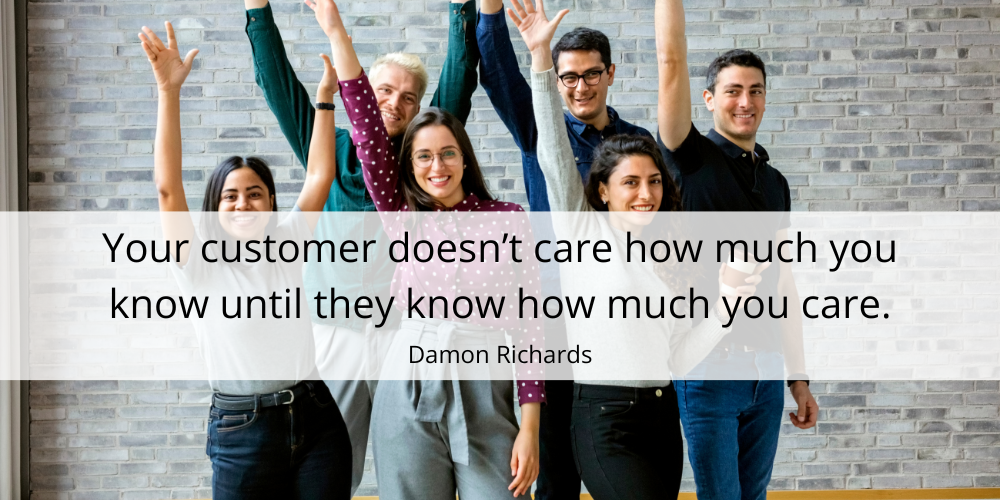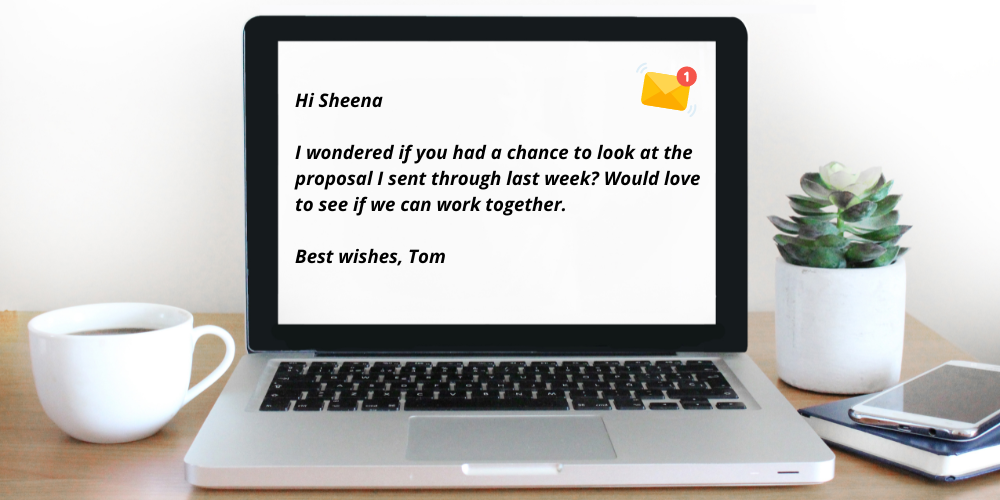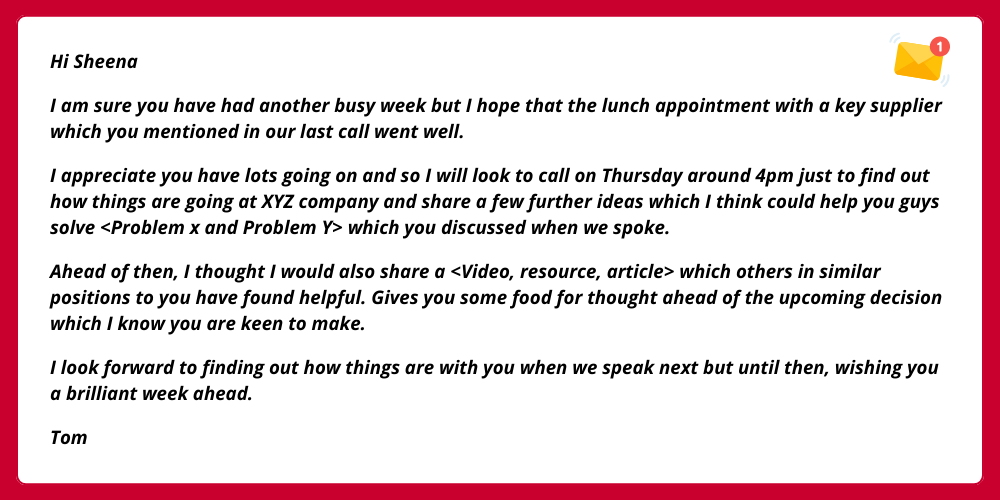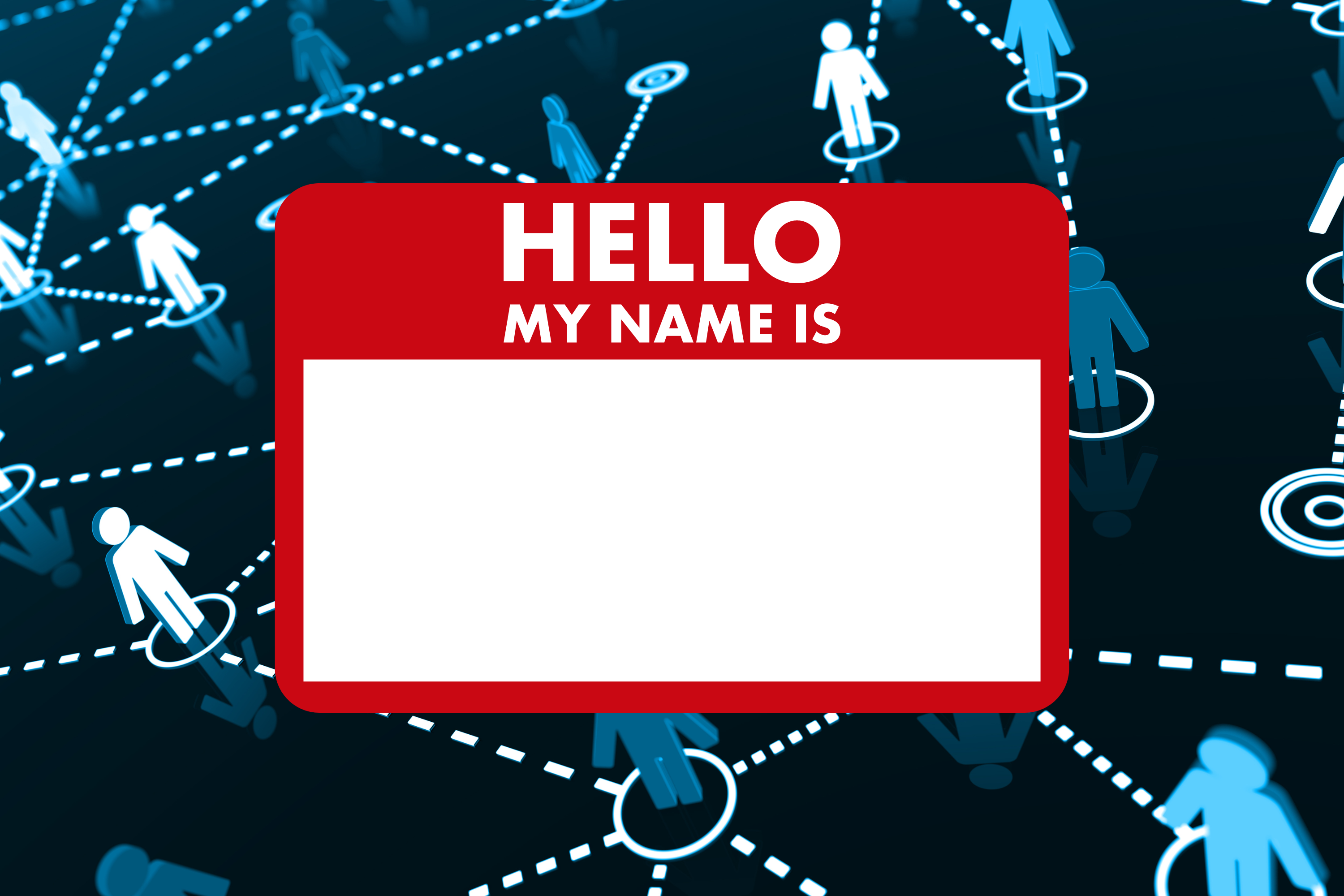Ready for Christmas?
Maybe you are ready for a break from work but maybe haven’t bought everything yet? Join the club of thousands of others who are seeing the days count down!
I have a client who told me once that he forgot to buy anything for his wife and the only thing that was open on Christmas Eve (when he remembered) was the Golf Driving Range.
Needless to say, she wasn’t overly enamoured with her new set of golf clubs on Christmas morning….
Cost him a fortune in wrapping paper as well, nor did did it fit very well under the tree 
Being thoughtful isn’t just something we should be doing at Christmas.
We should be thoughtful at all times when it comes to our communications with our potential buyers.

Too many people who are trying to sell think about themselves and what they want, rather than thinking about the other person.
A common example of this is the email follow-up after a first meeting or when a proposal has been sent.
I covered this subject at length in a podcast episode a few months ago, but let me also be direct about how to do this in a way that can bring your buyer closer to you.
It is all based on the concept of reciprocity.
As human beings, we tend to do things for people who do things for us.
Inherently we are selfish by nature but when someone does something nice for us, we are more compelled to return the favour.
It doesn’t always work but in 1974, a socialogist called Philip Kuntz did an experiment (yes that is his name, and yes, before someone sends anything back to me – I know I know  ).
).
He sent out 600 Christmas cards to people he had never met before and 200 of them replied and sent a card back to him.
200 people felt so compelled to return the favour to someone they didn’t know!
How can you apply this within your sales and potential buyer conversations?
The answer is to follow up with value.
Take a look at the email below:

Now sadly, I believe that email is what the majority of people send. Or a version like this.
Yep, I can feel you looking upwards and thinking ‘Oh I did send an email like this to Bob x weeks ago, what is so wrong with it?’
The answer is – it’s selfish.
It focuses on you as the seller and not on the buyer. It’s about what you want from the relationship and not what the buyer will get. You may get a response if in this case, Sheena has decided your solution will make a difference in her world. If she does respond, it won’t be because of you, it will be in spite of you.
Take a look at a different version of this email which you could send:

Which of these emails hits upon the Law of Reciprocity more? Which thinks more about the other person? Which is more likely to make the person receiving the email think ‘Ah that is helpful and useful, I like Tom’.
Yes, you guessed it. It’s not email 1. And yet sadly, email 1 is how most people follow up.
Our job is to get inside the buyer’s mind and their heart!
Our job is to think like them, to put ourselves in their shoes.
Very often, to get the result we want, we have to act differently.
There is no guarantee that Sheena will reply (our friend Philip didn’t get cards back from all 600 people he sent the card to) but the Law of Reciprocity increases our chances of success and that is what sales and selling is all about.
- The second email remembers her – Sheena thinks, “ah that is nice” and builds more of a connection with Tom.
- The second email shows respect for her time – Sheena thinks “great, they understand the role I have”.
- The second email builds credibility – Sheena thinks, “I wonder what others in that role have thought to this”.
- The second email adds value – Sheena thinks, “it might be useful to look at this information before I make my decision”.
The first email does none of these.
Which is why it is highly likely to get ignored.
So if you are sending out valueless emails to old leads and wondering why you haven’t heard anything back, then here is your answer.
Start thinking like the buyer. Ask yourself the question, what would you do in their situation if you were sent email 1 and if the answer is ‘delete or ignore it’ then vow to change that and start adding value.
This doesn’t mean you have to bow down at your buyer’s table and be a lapdog to them. Sales is not all about subservience as I will share next Saturday, but it IS about thinking about the other person and giving time to consider what will make a difference in their world.
Much like buying Christmas presents for those we love…







